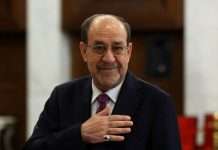Tipoli’s Example
Ahmad El-Assaad/June 02, 2016
There is no doubt that municipal elections in the different Lebanese regions have expressed the Lebanese people’s desire to change the political status quo, regardless of their religious affiliations. Out of the ballot boxes emerged the cries of opposition, shy here, resounding there. They were against the performance of the political forces, and reflective of the Lebanese people’s dissatisfaction of the current political situation.
This trend found its apex in Tripoli’s elections, which were the clearest representation of the people’s anger with a political class who has proved to be incompetent and unable, whose fluctuating political positions have made the people grow weary – not to mention the daily findings of corruption in many of its components.
What happened in Tripoli, and in other towns and village at a lesser degree, was democracy at its best.
Democracy isn’t just the right to vote; it is to be able to draw change from the act of voting.
Democracy shines bright when it achieves its most noble goal: to be a means for the people to hold the political class accountable, and a way to transfer power.
This is exactly what happened in Tripoli.
Up until recently, Tripoli was the ground of a fierce civil battle; and now, it is the perfect example for what the practice of democracy should be like.
We read left and right about the reasons that led to such results, but the conclusion of all these readings is that the people of Tripoli wanted to send a simple message to their traditional political class: “No. we will not make the same mistake again. We’re tired of you, your concessions and the deals you make among you. It is time to try a new option.”
And if this new option that the people of Tripoli chose is General Ashraf Rifi, then accountability must not stop there. The same accountability that brought Rifi should be applied to him in the next elections, in order to either confirm him, or opt for another. And so on and so forth, with him or with another.
Maybe a year from now, in the parliamentary elections we wish and hope for, or after six years in the next municipal elections, the people of Tripoli must hold Ashraf Rifi accountable. If it turns out that he stuck to his principles and delivered his promises, they must renew their trust in him. Otherwise, they must act accordingly and once again, pick a new option.
This is the very essence of democracy worldwide, this is how its wheel turns.
But the wheel of democracy in Lebanon turns in place, not pushing the country forward, and that’s because of the absence of checks and balances of the elected officials.
The Lebanese people regularly complain and whine about the situation of their country. But when it is time to hold accountable, when the chance for change arises during elections, most of them reelect the same political class that brought the country to the deterioration and decline it is in today.
The municipal elections have presented us with an exceptional example, that of the people of Tripoli, who have proved to be very progressive in their political and electoral behavior, compare to the rest of the country.
Congratulations are in order for Tripoli… for being a role model for all of the Lebanese people.
نموذج طرابلس
أحمد الأسعد /02 حزيران/16
لا شك في أن الإنتخابات البلدية في مختلف المناطق اللبنانية عبّرت عن رغبة لدى اللبنانيين، على اختلاف طوائفهم، في تغيير الواقع السياسي السائد. ومن صناديق الاقتراع خرجت صرخات اعتراض، خجولة هنا ومدوّية هناك، على اداء القوى السياسية، عكست عدم رضى اللبنانيين على المشهد السياسي الراهن.
هذا المنحى توجّته نتائج انتخابات طرابلس، إذ هي كانت الأوضح ترجمةً لغضب الناس على طبقة سياسية أثبتت عجزها وعقمها، وأنهكت اللبنانيين بتقلّب خياراتها وتحالفاتها وخطابها، فضلاً عما يتكشّف يوماً بعد يوم من فساد الكثير من مكوّناتها.
إن ما حدث في طرابلس، وبدرجة أقل في مدن وبلدات أخرى، كان ديمقراطية حقيقية بامتياز.
فالديمقراطية ليست مجرّد أن يكون للناس الحق في التصويت، بل هي أن يكونوا قادرين على التغيير من هذا التصويت.
الديمقراطية تتجلى بأبهى حللها عندما تحقق هدفها الأسمى، وهو أن تكون وسيلة ليحاسب الناس الطبقة السياسية، وسبيلاً إلى تداول السلطة.
هذا هو بالضبط ما حدث في طرابلس.
طرابلس التي كانت حتى الأمس القريب ساحة قتال أهلي شرس، باتت اليوم نموذجاً مثالياً لما ينبغي أن تكون عليه الممارسة الديموقراطية.
نقرأ شمالاً ويميناً عن الأسباب التي أدت إلى هذه النتائج، لكنّ خلاصة القول في كل تلك القراءات، هي أن سكان طرابلس أرادوا أن يرسلوا رسالة بسيطة إلى الطبقة السياسية التقليدية في طرابلس: “لا. لن نكرر الخطأ. تعبنا منكم ومن مساوماتكم ومن الصفقات في ما بينكم، وحان الوقت لكي نجرّب خياراً جديدا”.
وإذا كان “الخيار الجديد” الذي أراده الطرابلسيون هو اللواء أشرف ريفي، فإن المطلوب ألاّ تتوقف المحاسبة هنا. فالمحاسبة التي أتت بخيار ريفي، يجب أن تطبق عليه في الإستحقاق الإنتخابي المقبل، فتثبته خياراً أو تختار غيره، وهكذا دواليك، معه أو مع غيره.
بعد سنة ربما، في الانتخابات النيابية المأمولة، أو بعد ست سنوات، في الانتخابات البلدية المقبلة، على الطرابلسيين أن يحاسبوا أشرف ريفي، فإذا تبيّن لهم أنه تمسك بمبادئه ونفذ ما وعد به، ينبغي تبعاً لذلك أن يجددوا الثقة به.ولكن إذا تبيّن لهم أنه لم تلتزم بوعوده، عليهم أن يتصرفوا على هذا الأساس، ويختاروا مرة أخرى شيئاً جديداً.
هذا هو منطق الديمقراطية في كل مكان في العالم، وهكذا تدور عجلتها.
أما عجلة الديموقراطية في لبنان، فتدور في مكانها، لكنها لا تجعل البلد يتقدم، وذلك لأن اللبنانيين لا يحاسبون من انتخبوهم.
يواظب اللبنانيون على التذمر من أوضاع بلدهم، ويئنون من سوء حال بلدهم، ولكنهم، عندما تحين لحظة المحاسبة، وفرصة التغيير من خلال الإنتخابات، يعيد معظمهم انتخاب الطبقة السياسية نفسها التي أوصلت البلد إلى ما هو فيه من تدهور وانحدار.
لقد قدمت لنا الإنتخابات البلدية نموذجاً استثنائياً هو نموذج شعب طرابلس الذي أثبت أنه متقدم جداً في سلوكه السياسي والإنتخابي على بقية اللبنانيين.
تهانينا لطرابلس …. فهي النموذج الذي يجب أن يتبعه جميع اللبنانيين.




















